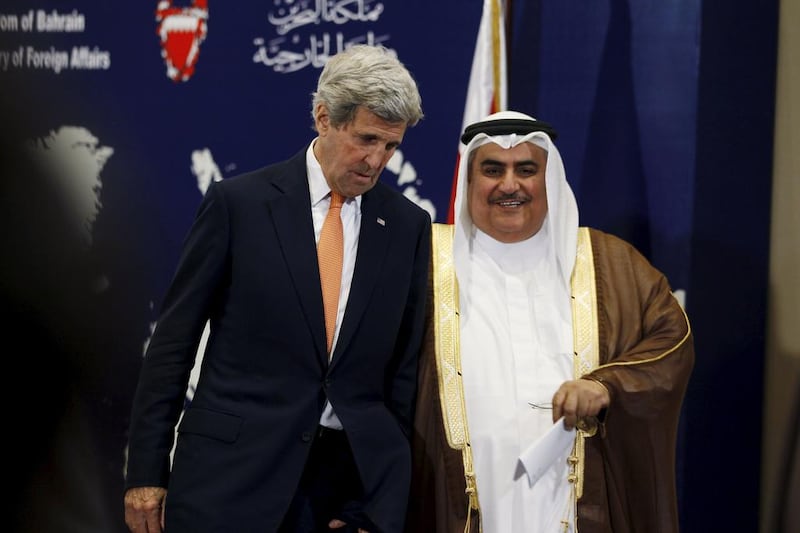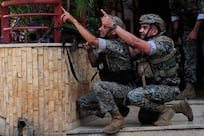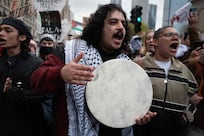The relationship between the Gulf countries and the United States has been back in focus over the past few days with US secretary of state John Kerry’s visit to Bahrain ahead of a summit between GCC leaders and president Barack Obama in Saudi Arabia on April 21. To say that the UAE and its Gulf allies have been receiving mixed messages from our most powerful western ally is an understatement.
It is understood that Mr Kerry’s meeting in Manama with GCC foreign ministers covered a raft of regional issues of common interest, including Yemen, Syria, Iraq and Lebanon. There is certainly a lot to talk about. From the Gulf perspective, concerns include Mr Obama’s talk of a “pivot to Asia”, America’s unwillingness to assume a greater leadership role over Syria, and the fallout from the nuclear deal struck with Iran by the P5+1 nations led by the US.
Significantly, Mr Kerry floated the notion of a formal security partnership between the GCC and Nato. The idea of “enhanced” cooperation between the Gulf and the transatlantic alliance is certainly appealing. We certainly should welcome talk of cooperation in the fields of missile defence systems, maritime and cyber security, counterterrorism and military preparedness and a streamlined process for defence sales.
But Mr Kerry, whohas called US ties with the GCC strategic, had an important caveat – that the US seeks friendship with both the GCC and Iran. He acknowledged that Tehran has to change, but said the GCC has to find ways to work with Iran. As we have noted before, the barriers to closer cooperation are solely of Tehran’s making. While president Hassan Rouhani has been making conciliatory statements towards his Arab neighbours, the truth is that Iran continues to test missiles capable of reaching our shores – and beyond – and is still meddling across the region: in Yemen by arming the Houthi rebels; in Syria with its support for the murderous regime of Bashar Al Assad; and in Lebanon by enabling the destabilising activities of Hizbollah.
Clearly Mr Obama is thinking of the legacy of his administration, which has just 10 more months to run. While its long-term alliances with the GCC and its individual member nations are important to America, it wants to limit its own engagement in the area. This will prove difficult while there is still so much unfinished business. Perhaps there will be more details soon about the “enhanced” partnership it is offering, and hopefully, that will come when Mr Obama visits Riyadh this month.





